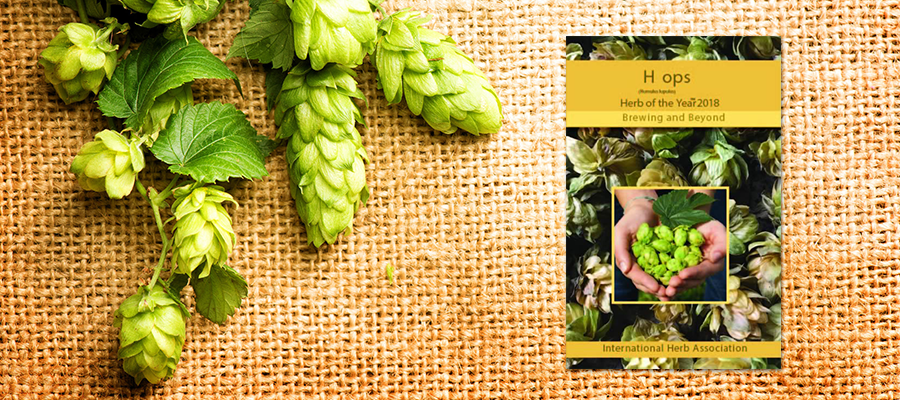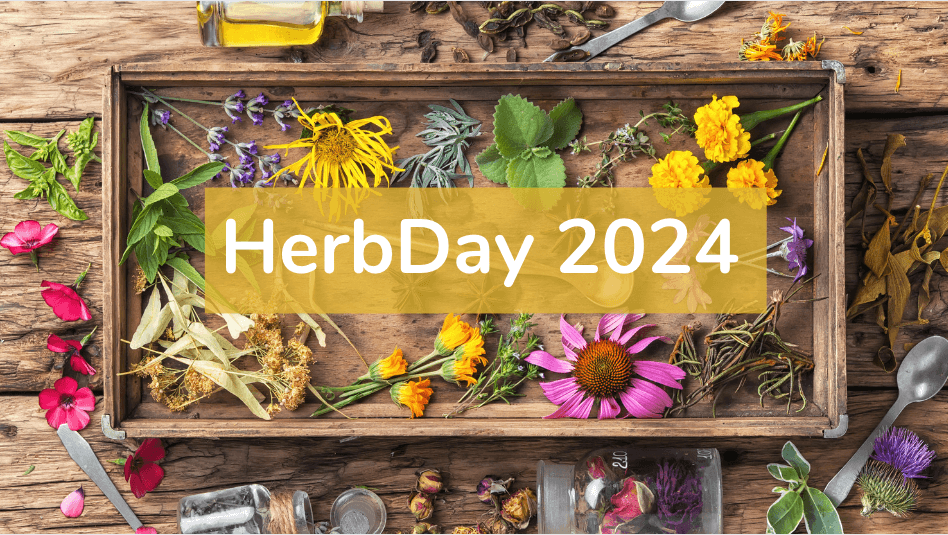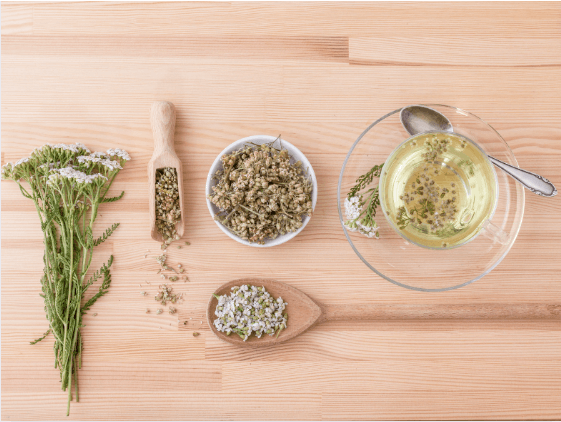Image Copyright: subbotina / 123RF Stock Photo
What do craft beer and herbal medicine have in common? Let’s ask a different question: what do you get when you mix barley, hops, and yeast? Beer! So really, there’s more to making herbal products than meets the eye!
Whether you’re a boutique brewer, beer enthusiast, herbalist, or inquisitive gardener wondering … What’s the deal with those strange looking vines? … we have a book full of hops know-how you’ll want to know about.
Each year, The International Herb Association releases a new addition to their annual anthology series, Herb of the Year™. This year, it’s Hops, Herb of the Year 2018™: Brewing and Beyond. From fragrance and flavor to botany and cultivation to history and medical information to recipes for the kitchen, bath, and boudoir—this hops Humulus lupulus (L.) how-to tome contains more than 40 timely articles with photographs and illustrations from herbal medicine writers and artists.
Contributions include ACHS President and Founder Dorene Petersen’s article “Hops: Handy Home Herbal Help for Hot Flashes, Sleep, and More,” featuring the holistic health benefits of hops in your herbal medicine cabinet and its safe and effective use as an essential oil. Petersen also chats about how hops can act as a sedative. “Essentially, hops will leave you feeling the opposite of a double espresso … chilled out,” she says.
So, while the current craft beer craze is quickly revitalizing hops as a viable farm crop, there’s a lot more to this wondrous plant with its characteristic fibrous roots and golden strobiles than beer. It’s also aromatically intoxicating! And, it can be an effective tool to help healthy sleep (try an herbal product like a hops tincture!).
If fact, here’s a list of 7 fun facts about this herbal natural products powerhouse you might not know:
- Hops is a perennial climber with tendrils that can grow up to 18-feet long.
- The male and female flowers grow on separate plants. Only plant together if you want seed. (Seeds in hops can produce off notes in beer and are also traditionally believed to reduce the medicinal value of the plant. So, it’s important to know your planting goals in advance!)
- The cone-like structures—or strobiles—are the female flowers.
- If you’re using your hops medicinally, harvest the strobiles once they have reached full maturity and maximum lupulin and essential oil yield. This will vary by where you live, so check with your local herbalist or consult a good botanical guide. In the Pacific Northwest, for example, late September is typically a good time.
- Hops harvested for medicinal purposes should not be treated in any way so you don’t affect the active constituents.
- Dried hops can safely be stored in a well-sealed container (preferably in a dry, dark place like a low shelf) for up to two years.
- Researchers are looking into how hops extract may bind to estrogen receptors and reduce both the frequency and the severity of hot flashes.[1] That's good news for Team Menopause!
But, don't take our word for it! Check out Hops, Herb of the Year 2018™: Brewing and Beyond for Petersen’s full article, as well as contributions from several notable herbal experts including Robin Rose Bennett, Susan Belsinger, Art Tucker, Pat Crocker, Daniel Gagnon, and Pat Kenny with special poetry by Emanuel DiPasquale and additional articles by regional experts.
Hops, Herb of the Year 2018™ was edited by Gert Coleman for the International Herb Association (IHA). This sure-to-be-a-classic text is 300+ pages of awesome information, perfect bound with a color cover, and full of black-and-white photos and illustrations. For information on wholesale pricing, contact IHA directly, or get your own edition signed by herbal and aromatherapy expert Dorene Petersen here.
References
[1] Abdi, F., Mobedi, H., & Roozbeh. N. (2016). Hops for menopausal vasomotor symptoms: mechanisms of action. J Menopausal Med., 22(2), 62-64.
ABOUT ACHS
Founded in 1978, ACHS is an accredited college offering online, on-campus, and study abroad integrative health education. With undergraduate and graduate degrees, diplomas, certificates, and continuing education courses in integrative medicine, ACHS makes holistic health and wellness education accessible to a diverse community of learners, including healthcare professionals, military students, stay-at-home parents, and lifelong learners. Specializations include aromatherapy, herbal medicine, holistic nutrition, and wellness. A Certified B Corporation® and 2017 When Work Works award winner, ACHS is also accredited by the Distance Education Accrediting Commission (DEAC), which is recognized by the U.S. Department of Education and by the Council for Higher Education Accreditation (CHEA). Learn more about classes here.
Disclosure of Material Connection: This blog may contain affiliate links. I am disclosing this in accordance with the Federal Trade Commission’s 16 CFR, Part 255: “Guides Concerning the Use of Endorsements and Testimonials in Advertising.
This article is for informational purposes only. It is not intended to treat, diagnose, cure, or prevent disease. This article has not been reviewed by the FDA. Always consult with your primary care physician or naturopathic doctor before making any significant changes to your health and wellness routine.






